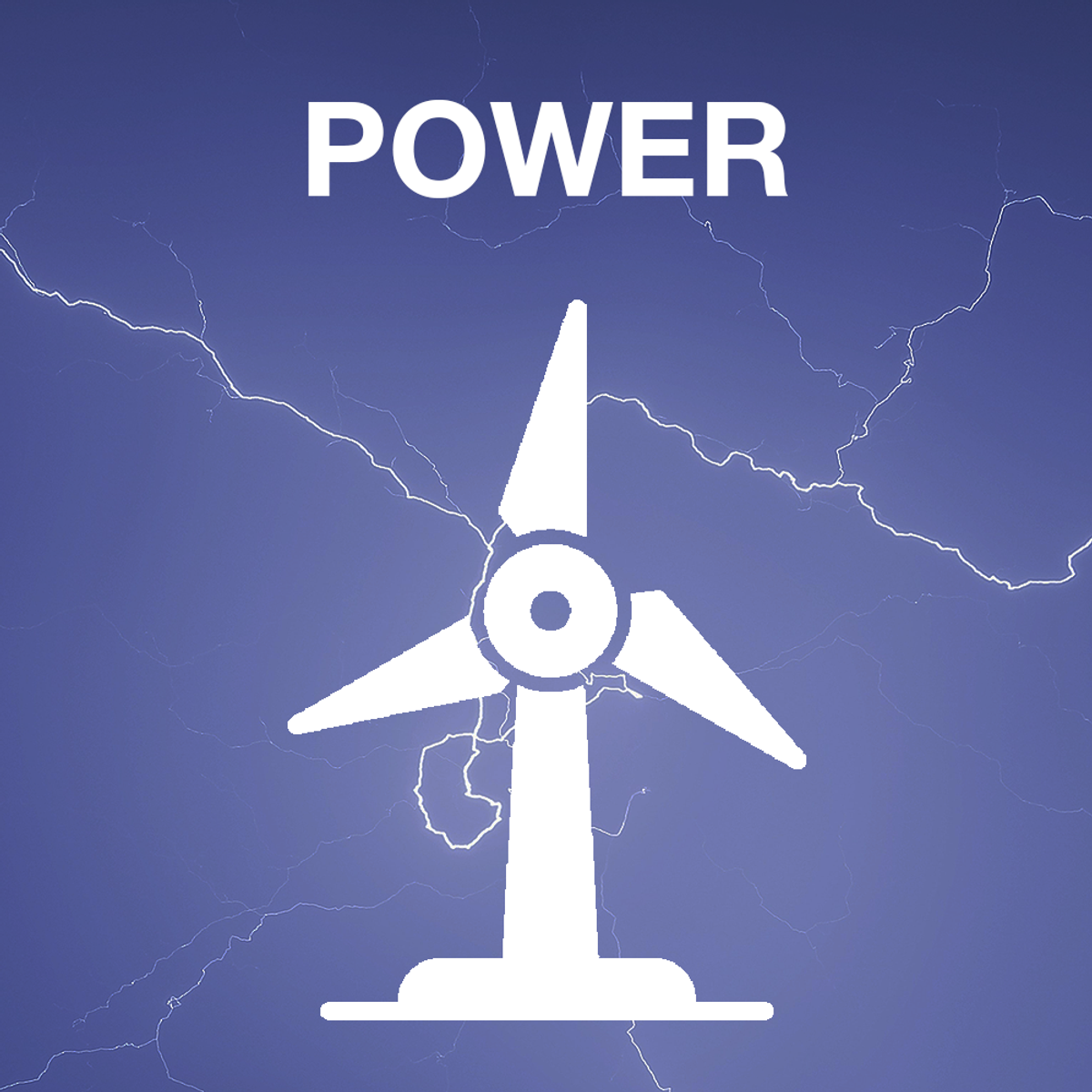Electrical Engineer
Electrical Engineer: Illuminating the Path to a Dynamic Career
Electrical engineering is a vast and vital field focused on the study, design, and application of equipment, devices, and systems that use electricity, electronics, and electromagnetism. From the smallest microchips powering our smartphones to the massive power grids supplying energy to entire cities, electrical engineers are the architects behind the technology that defines modern life. Their work touches nearly every industry, driving innovation and solving complex problems.
Embarking on a career as an electrical engineer means entering a world of constant discovery and impact. You might find yourself designing the next generation of renewable energy systems, developing cutting-edge communication networks, creating life-saving medical devices, or programming the intricate control systems for robots and autonomous vehicles. It's a field that demands creativity, analytical thinking, and a passion for harnessing the power of electricity to shape the future.
This career path offers diverse opportunities for specialization and growth, allowing individuals to find niches that align with their interests, whether in power generation, electronics design, signal processing, or countless other areas. It's a challenging yet rewarding profession for those fascinated by how electricity works and eager to apply that knowledge to create practical solutions.
Introduction to Electrical Engineering
Electrical engineering stands as a cornerstone of modern technology. It's a broad discipline encompassing the design, development, testing, and supervision of manufacturing electrical equipment. This ranges from micro-scale components like transistors to macro-scale systems such as national power grids. Essentially, if it uses electricity or deals with electromagnetic phenomena, electrical engineers likely played a role in its creation.
The field is incredibly diverse, offering numerous pathways for specialization. Understanding its scope helps prospective engineers appreciate the breadth of opportunities available and the fundamental principles connecting seemingly disparate areas.
What is Electrical Engineering?
At its core, electrical engineering applies physics and mathematics principles to electricity, electronics, and electromagnetism. Engineers in this field work on systems that generate, transmit, distribute, and utilize electrical energy. They also design electronic circuits, devices, and systems for computation, communication, control, and information processing.
This involves not only designing new products but also improving existing technologies, ensuring safety and efficiency, and overseeing manufacturing processes. The work is often collaborative, involving teams of engineers, technicians, and other professionals to bring complex projects to fruition.
Whether developing a more efficient solar panel, designing a faster microprocessor, or creating a sophisticated radar system, electrical engineers translate scientific principles into tangible technological advancements. Their work underpins much of the infrastructure and innovation we rely on daily.
Key Subfields and Specializations
Electrical engineering branches into several specialized areas. Power engineering focuses on the generation, transmission, and distribution of electric power, including developing smart grids and renewable energy integration. Electronics engineering deals with designing electronic circuits, microprocessors, and integrated circuits found in computers, mobile devices, and countless other gadgets.
Telecommunications engineering involves designing systems for transmitting information across various mediums, like fiber optics, satellites, and wireless networks. Control systems engineering focuses on designing systems that automatically manage and regulate processes, crucial in areas like automation, robotics, and aerospace.
Other significant subfields include signal processing (analyzing and manipulating signals like audio or images), computer engineering (designing computer hardware and software systems), instrumentation (designing devices to measure physical quantities), and electromagnetics (studying electric and magnetic fields and their applications, like antennas and microwaves). Many engineers work across multiple subfields.
These diverse specializations mean electrical engineers can find roles in almost any industry, from energy and communications to healthcare and entertainment. Exploring these subfields can help you identify areas that particularly spark your interest.
Consider exploring introductory courses to get a feel for the different specializations within electrical engineering. Online platforms offer a flexible way to learn about power systems, basic electronics, or signal processing fundamentals.
Historical Milestones and Impact
The history of electrical engineering is intertwined with major scientific discoveries and technological revolutions. Early pioneers like Alessandro Volta, Michael Faraday, and James Clerk Maxwell laid the theoretical groundwork in the 18th and 19th centuries, exploring electricity and magnetism.
The late 19th and early 20th centuries saw practical applications explode with inventions like the light bulb (Thomas Edison), AC power systems (Nikola Tesla, George Westinghouse), and radio communication (Guglielmo Marconi). These innovations fundamentally transformed society, enabling widespread electrification and instant global communication.
The mid-20th century brought the transistor revolution, leading to the development of integrated circuits, computers, and the digital age. Electrical engineers were central to advancements in semiconductor technology, paving the way for personal computers, the internet, and mobile devices. The societal impact has been immense, reshaping how we live, work, and interact.
Today, electrical engineers continue to push boundaries in areas like renewable energy, artificial intelligence, quantum computing, and biomedical devices, constantly shaping the technological landscape and addressing global challenges.
Core Responsibilities of Electrical Engineers
Electrical engineers perform a wide range of tasks depending on their specialization and industry. Common responsibilities include designing new electrical systems, components, or applications. This involves research, creating technical specifications, developing prototypes, and testing designs to ensure they meet requirements for performance, safety, and reliability.
Many electrical engineers are involved in the manufacturing process, overseeing production, ensuring quality control, and troubleshooting issues. They might also manage projects, coordinating teams, budgets, and schedules to deliver projects on time and within scope. Developing maintenance and operating procedures for electrical equipment is another key responsibility.
Problem-solving is a fundamental aspect of the role. Engineers analyze technical problems, identify root causes, and develop effective solutions. Staying current with the latest technological advancements, industry standards, and regulations is also crucial for success and continued professional development in this rapidly evolving field.
Core Concepts and Tools in Electrical Engineering
A strong foundation in fundamental principles and proficiency with essential tools are critical for success in electrical engineering. This section delves into the core knowledge base and the typical equipment and software used by professionals in the field.
Mastering these concepts allows engineers to analyze complex systems, design innovative solutions, and effectively troubleshoot problems across various applications.
Fundamental Principles
Circuit theory is a cornerstone, dealing with the behavior of electrical circuits composed of components like resistors, capacitors, inductors, and power sources. Key concepts include Ohm's Law, Kirchhoff's Laws, and techniques for analyzing DC and AC circuits. Understanding how current flows, voltage distributes, and power dissipates is essential.
Electromagnetism is another critical area, exploring the relationship between electricity and magnetism, described by Maxwell's Equations. This governs everything from antennas and wave propagation to motors and generators. A grasp of electric and magnetic fields, electromagnetic waves, and their interaction with materials is vital.
Signals and systems theory provides methods for analyzing, processing, and transmitting signals (like audio, video, or sensor data). Concepts like Fourier analysis, Laplace transforms, and filter design are fundamental tools for understanding system behavior in both time and frequency domains. Digital logic and semiconductor physics underpin the design of digital circuits and electronic devices.
These foundational courses offer a deep dive into the principles that govern electrical systems. They provide the mathematical and conceptual framework needed for more advanced study and practical application.
These books provide comprehensive coverage of core electrical engineering principles. They are often used as standard texts in university courses and serve as valuable references throughout an engineer's career.
Essential Tools and Technologies
Electrical engineers rely on a variety of tools. Software is indispensable, particularly CAD (Computer-Aided Design) tools like Altium Designer or OrCAD for designing printed circuit boards (PCBs) and schematics. Simulation software, such as SPICE (Simulation Program with Integrated Circuit Emphasis) or MATLAB/Simulink, allows engineers to model and test circuit behavior virtually before physical prototyping.
Hardware tools are equally important. Oscilloscopes are used to visualize and measure electrical signals over time, essential for debugging circuits. Multimeters measure voltage, current, and resistance. Signal generators create specific waveforms for testing circuit responses. Power supplies provide controlled electrical energy for experiments and prototypes. Logic analyzers help debug digital systems by capturing and displaying multiple digital signals simultaneously.
Proficiency with these tools, both software and hardware, is developed through coursework, lab exercises, and practical experience. Familiarity with industry-standard tools is often a key requirement for employment.
These courses offer hands-on experience with crucial software and hardware tools used in the field. Learning to simulate circuits and design PCBs is fundamental for practical electrical engineering work.
Common Methodologies
Electrical engineers employ systematic approaches to design and problem-solving. Simulation plays a crucial role, allowing engineers to model system behavior under various conditions and identify potential issues early in the design cycle. This virtual testing reduces the need for costly physical prototypes and speeds up development.
Prototyping involves building physical models or preliminary versions of a design to test functionality and performance in the real world. This iterative process helps refine the design based on empirical data. Techniques range from breadboarding simple circuits to fabricating complex integrated circuits in specialized facilities.
Testing and validation are critical steps to ensure a design meets specifications and performs reliably. This involves using measurement tools (like oscilloscopes and multimeters) and developing test procedures to verify functionality, performance, and safety under expected operating conditions.
Industry Standards and Certifications
Adherence to industry standards is paramount in electrical engineering to ensure safety, interoperability, and reliability. Organizations like the IEEE (Institute of Electrical and Electronics Engineers), IEC (International Electrotechnical Commission), and national bodies (like ANSI in the US) develop and maintain standards covering everything from component specifications to safety protocols and communication methods.
Professional certifications can enhance an engineer's credentials and career prospects. The Professional Engineer (PE) license, particularly in the US and Canada, is often required for engineers whose work directly impacts public safety, such as those designing power systems or building infrastructure. Requirements typically include graduating from an accredited engineering program, passing exams (Fundamentals of Engineering - FE, and Principles and Practice of Engineering - PE), and gaining relevant work experience.
Other certifications exist for specialized areas, such as those related to specific software (e.g., CAD tools), network protocols, or safety standards (e.g., functional safety certifications for automotive or industrial applications). Continuous learning and staying updated on relevant standards and potential certifications are important aspects of professional growth.
Explore the requirements for professional licensure through organizations like NCEES (National Council of Examiners for Engineering and Surveying) in the US. Understanding these requirements early can help shape educational and career planning.
Formal Education Pathways for Electrical Engineers
A career in electrical engineering typically begins with a strong formal education. This section outlines the common academic paths, from high school preparation to advanced degrees, highlighting the knowledge and skills developed along the way.
Understanding these pathways is essential for aspiring engineers planning their educational journey, whether they are entering university or considering a career change that requires further schooling.
Pre-University Preparation
Success in electrical engineering relies heavily on a solid grasp of mathematics and science. High school students interested in this field should focus on courses like physics, chemistry, and advanced mathematics, particularly calculus, algebra, and trigonometry. These subjects provide the foundational tools needed to understand complex engineering concepts.
Developing strong analytical and problem-solving skills is also crucial. Participating in science fairs, robotics clubs, or math competitions can provide valuable hands-on experience and demonstrate aptitude for engineering challenges. Computer programming skills are increasingly important, so taking introductory computer science courses can be beneficial.
Building a strong academic record in these key areas will significantly improve chances of admission into competitive university engineering programs and set the stage for success in undergraduate studies.
This introductory physics course covers many foundational concepts relevant to electrical engineering. Building a strong physics background is essential before tackling university-level engineering courses.
Undergraduate Degree Programs
A Bachelor of Science (B.S.) in Electrical Engineering is the standard entry-level requirement for most electrical engineering positions. These programs typically last four years and provide a broad education in core electrical engineering principles alongside advanced mathematics and physics.
The curriculum usually covers fundamental areas like circuit theory, digital logic, electronics, electromagnetism, signals and systems, and computer programming. Laboratory work is a significant component, providing hands-on experience with measurement tools, circuit building, and simulation software. Many programs also include courses in technical communication and engineering ethics.
In later years, students often choose specialization tracks, allowing them to deepen their knowledge in areas like power systems, communications, control systems, microelectronics, or computer engineering. Capstone design projects are common, requiring students to apply their knowledge to solve a real-world engineering problem, often working in teams.
These introductory courses cover the fundamentals taught early in undergraduate electrical engineering programs. They can serve as a supplement to formal studies or provide a glimpse into the field for those considering it.
Graduate Studies and Research
For those seeking deeper specialization, research roles, or academic careers, graduate studies are often necessary. A Master of Science (M.S.) degree typically takes one to two years and allows for focused study in a specific subfield like VLSI design, power electronics, or wireless communications. It often involves advanced coursework and may include a thesis or project.
A Doctor of Philosophy (Ph.D.) degree is research-intensive, typically taking four to six years beyond the bachelor's degree. Ph.D. candidates conduct original research, contribute new knowledge to the field, and culminate their studies with a doctoral dissertation. This path is common for those aiming for positions in university research, advanced R&D in industry, or specialized consulting.
Graduate programs offer opportunities to work closely with faculty on cutting-edge research projects, publish findings in academic journals, and present at conferences. These experiences are invaluable for developing deep expertise and advancing the frontiers of electrical engineering.
These courses delve into advanced topics often covered in graduate-level studies or specialized tracks. They are suitable for those looking to deepen their expertise in areas like power electronics or embedded systems.
Accreditation and Global Recognition
When choosing an engineering program, accreditation is an important factor. In the United States, ABET (Accreditation Board for Engineering and Technology) is the primary accrediting body for engineering programs. Graduating from an ABET-accredited program signifies that the program meets established quality standards and is often a prerequisite for professional licensure (PE).
Internationally, agreements like the Washington Accord facilitate the recognition of engineering degrees across signatory countries. This means that a degree accredited by a recognized body in one member country (like ABET in the US) is generally accepted as substantially equivalent in other member countries, simplifying the process for engineers seeking to work abroad.
Prospective students should verify the accreditation status of any engineering program they consider. Information about accredited programs can usually be found on the websites of accrediting bodies like ABET or relevant national engineering organizations.
Career Progression for Electrical Engineers
An electrical engineering career offers diverse pathways for growth and advancement. Understanding the typical trajectory, from entry-level positions to senior roles, can help individuals plan their professional development and set long-term goals.
Progression often involves gaining technical expertise, developing leadership skills, and potentially specializing further within the vast field of electrical engineering.
Typical Entry-Level Roles
Graduates with a bachelor's degree typically start in entry-level positions where they apply their foundational knowledge under the supervision of experienced engineers. Common roles include Design Engineer, where they assist in developing and testing circuits or systems, or Test Engineer, focusing on validating product performance and reliability.
Field Service Engineers install, maintain, and troubleshoot electrical equipment at client sites. Application Engineers help customers integrate and use specific products or technologies. Roles in manufacturing might involve process engineering or quality control. These initial positions provide crucial practical experience and exposure to industry practices.
Early career stages focus on building technical competence, learning specific tools and processes used by the employer, and understanding the practical application of engineering principles. Mentorship from senior engineers is often a key part of this phase.
These introductory courses cover fundamental skills and technologies often encountered in entry-level roles, such as basic circuit analysis and electronics principles.
Mid-Career Advancement and Specialization
After gaining several years of experience, electrical engineers often advance to roles with greater responsibility. This might involve leading design projects, managing small teams, or becoming a subject matter expert in a specific technical area. Obtaining a Professional Engineer (PE) license can open doors to roles requiring certified expertise, particularly in fields like power or construction.
Mid-career engineers may choose to specialize further, deepening their expertise in areas like embedded systems, RF design, power electronics, or signal processing. This specialization often involves pursuing further education (like a master's degree) or obtaining specialized certifications. Some engineers transition into project management, overseeing larger projects and coordinating diverse teams.
This stage often involves mentoring junior engineers, contributing to technical strategy, and taking on more complex design challenges. Strong technical skills combined with effective communication and leadership abilities are key for advancement.
These courses cover more advanced topics relevant to mid-career specialization or transitions into areas like control systems or project management.
Senior Positions and Leadership Roles
With extensive experience and demonstrated expertise, electrical engineers can progress to senior technical or management positions. Senior technical roles might include Principal Engineer, Systems Architect, or Technical Fellow, focusing on high-level design, innovation, and solving the most challenging technical problems.
Management paths can lead to roles like Engineering Manager, Director of Engineering, or even Chief Technology Officer (CTO). These positions involve overseeing engineering departments, setting technical direction for the company, managing budgets, and developing talent. Strong leadership, strategic thinking, and business acumen become increasingly important.
Some experienced engineers leverage their expertise to become consultants, start their own companies, or move into academic roles. The specific path depends on individual interests, skills, and career goals. Continuous learning remains crucial even at senior levels to keep pace with technological advancements.
Continuing Education and Professional Development
Electrical engineering is a field marked by rapid technological change. Continuous learning is not just beneficial but essential for long-term career success. This can take many forms, including pursuing advanced degrees, attending industry conferences, participating in workshops, and taking online courses.
Professional organizations like the IEEE offer valuable resources, including publications, conferences, standards development, and networking opportunities. Maintaining professional certifications or licenses often requires ongoing professional development activities.
Employers often support continuing education through tuition reimbursement or internal training programs. Proactively seeking opportunities to learn new skills, stay updated on emerging technologies, and expand professional networks is key to remaining competitive and advancing in the field. OpenCourser provides a platform to explore thousands of engineering courses, helping engineers stay current.
Exploring specialized areas like robotics or advanced circuit design can be part of ongoing professional development. These courses offer deeper dives into specific domains.
Industry Applications of Electrical Engineering
Electrical engineering principles find application across a remarkably wide spectrum of industries. From powering homes and cities to enabling global communication and advancing medical technology, electrical engineers are integral to countless sectors that shape our world.
Understanding where electrical engineers work provides insight into the diverse career paths available and the real-world impact of the profession.
Key Sectors Employing Electrical Engineers
The energy sector is a major employer, with engineers working on power generation (including renewables like solar and wind), transmission grid infrastructure, and distribution systems. The electronics industry hires vast numbers of engineers to design consumer products like smartphones, computers, televisions, and gaming consoles, as well as the semiconductor components within them.
Telecommunications companies rely on electrical engineers to develop and maintain wireless networks, fiber optic systems, satellite communications, and internet infrastructure. The aerospace and defense industries employ engineers for designing avionics, guidance systems, radar, and communication systems for aircraft, spacecraft, and defense applications.
Other significant sectors include automotive (especially with the rise of electric and autonomous vehicles), healthcare (designing medical imaging equipment, monitoring devices, and implants), manufacturing (automation and control systems), and research and development across various scientific fields.
Case Studies of Electrical Engineering Innovations
Innovation driven by electrical engineering has repeatedly reshaped society. The development of the transistor in the mid-20th century revolutionized electronics, shrinking devices and paving the way for the digital age. This single invention enabled the creation of integrated circuits, microprocessors, and ultimately, personal computers and smartphones.
The invention and deployment of fiber optic communication systems allowed for high-speed data transmission over long distances, underpinning the modern internet and global communication networks. Similarly, the development of wireless communication technologies, from early radio to modern cellular networks (like 5G) and Wi-Fi, has connected billions of people and devices worldwide.
In the energy sector, advancements in power electronics have improved the efficiency of power conversion and control, critical for integrating renewable energy sources like solar and wind into the grid. Medical imaging technologies like MRI and CT scanners, heavily reliant on sophisticated electrical engineering principles, have transformed healthcare diagnostics.
Economic Impact and Market Trends
Electrical engineering is a significant driver of economic growth, enabling technological innovation across industries. The demand for electrical engineers remains strong, driven by ongoing advancements in areas like renewable energy, electric vehicles, artificial intelligence, IoT, and 5G communications. According to the U.S. Bureau of Labor Statistics, employment of electrical and electronics engineers is projected to grow in the coming years, reflecting the continued importance of this field.
Market trends indicate increasing focus on sustainability, energy efficiency, and automation. This translates into growing opportunities in areas like smart grid technology, electric vehicle infrastructure, industrial automation, and the development of energy-efficient electronics. The convergence of hardware and software also creates demand for engineers skilled in both domains, particularly in embedded systems and IoT.
Salaries for electrical engineers are competitive, reflecting the high level of skill and education required. Compensation varies based on experience, location, industry, and specialization, with fields like semiconductor manufacturing, aerospace, and research often offering higher pay scales.
These courses focus on specific industry applications like power systems, renewable energy, and building systems, reflecting key employment sectors.
Cross-Industry Collaboration
Electrical engineers rarely work in isolation. Their work often involves collaboration with professionals from other disciplines. For example, designing medical devices requires close interaction with biomedical engineers and healthcare professionals. Developing electric vehicles involves collaboration with mechanical engineers, materials scientists, and software developers.
In the energy sector, electrical engineers work alongside civil engineers on infrastructure projects and with environmental scientists on renewable energy integration. In consumer electronics, collaboration with industrial designers and software engineers is essential to create user-friendly and functional products.
This interdisciplinary nature requires strong communication and teamwork skills. Electrical engineers must be able to explain complex technical concepts to non-specialists and understand requirements from different perspectives to develop effective and integrated solutions.
Emerging Trends in Electrical Engineering
The field of electrical engineering is constantly evolving, driven by technological breakthroughs and shifting societal needs. Staying aware of emerging trends is crucial for engineers seeking to remain at the forefront of innovation and capitalize on new opportunities.
These trends often involve the convergence of electrical engineering with other fields like computer science, materials science, and environmental science, leading to exciting new applications and challenges.
Renewable Energy Systems and Smart Grids
The global push towards sustainability has fueled significant advancements in renewable energy technologies like solar photovoltaics and wind turbines. Electrical engineers are crucial in designing more efficient solar cells, optimizing wind turbine generators, and developing power electronics for converting and managing renewable power.
Integrating these variable energy sources into the existing power grid presents challenges. Smart grid technology, which uses digital communication and control systems, is key to managing energy flow, improving grid reliability, and incorporating distributed energy resources like rooftop solar and battery storage. Electrical engineers are designing the sensors, communication networks, and control algorithms that make smart grids possible.
This area involves power systems engineering, control theory, communications, and data analytics, offering many opportunities for innovation.
These courses explore the rapidly growing fields of renewable energy integration and smart grid technologies.
IoT and Embedded Systems Development
The Internet of Things (IoT) refers to the network of physical devices embedded with sensors, software, and connectivity, enabling them to collect and exchange data. Electrical engineers are central to designing the hardware components of IoT devices, including microcontrollers, sensors, wireless communication modules, and power management systems.
Embedded systems – specialized computer systems designed for specific functions within larger systems – are the core of IoT devices. Engineers design and program these systems, optimizing for low power consumption, real-time performance, and security. This requires expertise in hardware design, firmware development, and communication protocols.
Applications range from smart homes and wearable fitness trackers to industrial automation and connected vehicles, creating a vast landscape for electrical engineers skilled in embedded systems and IoT development.
These courses focus on the design and programming of embedded systems, a critical skill set for the growing IoT industry.
AI Integration in Electrical Design
Artificial Intelligence (AI) and Machine Learning (ML) are increasingly impacting electrical engineering. AI algorithms are being used to optimize circuit design, automate testing processes, predict equipment failures, and enhance the performance of control systems.
In power systems, AI can improve load forecasting, optimize grid operations, and enhance cybersecurity. In telecommunications, AI helps manage network traffic and optimize signal processing. For semiconductor design, ML techniques can accelerate the complex process of chip layout and verification.
Electrical engineers are collaborating with AI specialists or developing AI skills themselves to leverage these powerful tools. Understanding how to apply AI/ML techniques to traditional electrical engineering problems is becoming a valuable skill set.
This course explores how AI is being applied within various engineering domains, including electrical applications.
Nanotechnology and Quantum Computing Implications
Nanotechnology, the manipulation of matter at the atomic and molecular scale, is opening new frontiers in electronics. Electrical engineers are exploring nano-materials like graphene and carbon nanotubes to create smaller, faster, and more energy-efficient transistors and electronic components. Nanosensors offer unprecedented sensitivity for medical diagnostics and environmental monitoring.
Quantum computing, while still in its early stages, holds the potential to revolutionize computation by leveraging quantum mechanical phenomena. Electrical engineers are involved in designing the specialized hardware required for quantum computers, including superconducting circuits, control electronics, and sensitive measurement systems operating at extremely low temperatures.
These fields represent the cutting edge of research and require deep expertise in physics, materials science, and advanced electrical engineering principles. They offer exciting long-term prospects for innovation.
These courses provide introductions to the principles behind nanotechnology and nanosensors, areas with significant future potential.
Ethical Considerations in Electrical Engineering
Like all engineering disciplines, electrical engineering carries significant ethical responsibilities. The technologies developed can have profound impacts on society, the environment, and individual well-being, making ethical awareness and responsible practice essential.
Engineers must navigate complex considerations related to safety, environmental impact, data privacy, and equitable access to technology.
Environmental Impact of Electrical Systems
The generation, transmission, and consumption of electricity have significant environmental footprints. Electrical engineers play a role in mitigating these impacts by designing more energy-efficient devices and systems, developing cleaner energy generation technologies (like solar and wind), and creating smarter grids that reduce energy waste.
The lifecycle of electronic devices also poses environmental challenges, from resource extraction for manufacturing to the disposal of electronic waste (e-waste). Engineers are increasingly focused on designing products for durability, repairability, and recyclability, embracing principles of the circular economy to minimize environmental harm.
Ethical considerations involve balancing technological advancement with environmental stewardship, promoting sustainable practices, and being mindful of the long-term consequences of design choices.
Safety Standards and Risk Management
Ensuring the safety of electrical systems and devices is a paramount ethical obligation. Faulty designs or improper implementation can lead to electric shock, fires, equipment failure, and other hazards, potentially causing injury or death. Engineers must rigorously adhere to safety standards and codes in their designs.
This involves careful component selection, robust circuit protection design, thorough testing under various fault conditions, and clear documentation for installation and maintenance. Risk assessment and management are critical parts of the design process, identifying potential hazards and implementing measures to mitigate them.
Professional engineers, especially those with PE licensure, hold a direct responsibility for public safety in their work, reinforcing the importance of ethical conduct and competence.
Data Privacy in Connected Devices
The proliferation of IoT devices and interconnected systems raises significant concerns about data privacy and security. Many devices collect sensitive user data, from personal habits monitored by smart home gadgets to health information gathered by wearable sensors. Electrical engineers involved in designing these systems have an ethical responsibility to consider privacy implications.
This includes designing hardware and firmware with security in mind (e.g., secure boot processes, encryption capabilities), minimizing unnecessary data collection, and considering how data is stored, transmitted, and accessed. Collaboration with software engineers and cybersecurity experts is crucial to build secure and privacy-respecting systems.
Engineers must be aware of relevant privacy regulations (like GDPR or CCPA) and strive to build user trust by prioritizing data protection in their designs.
Global Equity in Technology Access
Technology developed by electrical engineers has the power to improve lives, but access is often unevenly distributed globally. Billions of people still lack reliable access to electricity, limiting opportunities for education, healthcare, and economic development. The "digital divide" also restricts access to information and communication technologies in many parts of the world.
Ethical considerations include designing technologies that are affordable, robust, and suitable for diverse environments and user needs. Engineers can contribute to initiatives aimed at expanding energy access in underserved regions, developing low-cost communication solutions, and designing technology that empowers rather than excludes marginalized communities.
Promoting global equity involves considering the broader societal impact of technological development and striving to ensure its benefits are shared more widely.
This course touches upon the intersection of ethics, technology, and engineering practice.
Global Opportunities for Electrical Engineers
Electrical engineering is a global profession, with opportunities extending far beyond national borders. Technological advancements and interconnected economies create demand for skilled engineers worldwide, offering possibilities for international careers and collaborations.
Understanding the global landscape can help engineers navigate international job markets, multinational projects, and the challenges of working in diverse cultural contexts.
Regional Demand Variations
The demand for electrical engineers varies significantly by region and country, influenced by economic conditions, industry focus, and government initiatives. Rapidly developing economies often have high demand for engineers to build infrastructure, particularly in energy and telecommunications.
Regions with strong technology hubs, such as Silicon Valley in the US, parts of Europe, and East Asia, offer numerous opportunities in areas like semiconductor design, software development, and consumer electronics. Countries investing heavily in renewable energy or advanced manufacturing also create specific demands for engineers with relevant expertise.
Researching specific regional markets, key industries, and major employers is essential for engineers considering international opportunities. Online job boards and professional networks can provide valuable insights into global demand trends.
Migration of Engineering Talent
The global nature of engineering often leads to the migration of talent. Engineers may move internationally to pursue specific job opportunities, access advanced education or research facilities, or seek different economic or lifestyle conditions. Companies also frequently recruit talent globally to fill skill gaps.
International mobility requires navigating visa requirements, professional licensing recognition (where agreements like the Washington Accord help), and adapting to new work environments. While challenging, international experience can significantly broaden an engineer's perspective and enhance their career profile.
Universities also play a role, attracting international students for engineering programs, many of whom may subsequently enter the local workforce or return home with enhanced skills.
Multinational Project Challenges
Working on multinational projects presents unique challenges and rewards. Teams may span different time zones, requiring effective communication strategies and coordination tools. Cultural differences in work styles, communication norms, and decision-making processes need to be navigated sensitively.
Technical standards and regulations can vary significantly between countries, requiring engineers to be adaptable and knowledgeable about diverse requirements. Language barriers can also pose challenges, although English is often the common language in international engineering projects.
Successfully managing these complexities requires strong cross-cultural communication skills, flexibility, and an appreciation for diverse perspectives. Experience on multinational projects is often highly valued by global companies.
Cultural Adaptability in Engineering Teams
Working effectively in diverse, multicultural engineering teams is increasingly important in a globalized world. This requires more than just technical competence; it involves cultural sensitivity, open-mindedness, and the ability to adapt communication styles.
Understanding different cultural approaches to hierarchy, teamwork, conflict resolution, and time management can prevent misunderstandings and foster collaboration. Building rapport and trust across cultural lines is key to leveraging the diverse strengths within a global team.
Developing cultural intelligence – the ability to effectively navigate and adapt to diverse cultural contexts – is a valuable asset for any engineer working in an international setting or for a multinational corporation.
Frequently Asked Questions (Electrical Engineering Careers)
Choosing a career path involves many questions. This section addresses some common inquiries about becoming and working as an electrical engineer, providing concise answers based on typical industry realities.
Is electrical engineering becoming obsolete due to automation?
While automation is changing aspects of engineering work, it is unlikely to make electrical engineers obsolete. Instead, automation tools (like advanced simulation software, AI-driven design assistants, and automated testing) are augmenting engineers' capabilities, allowing them to tackle more complex problems and focus on higher-level design and innovation.
Automation may reduce demand for certain routine tasks, but it simultaneously creates new roles for engineers who can design, implement, and manage these automated systems. Fields like robotics, AI, and control systems, which drive automation, heavily rely on electrical engineering expertise.
The core skills of problem-solving, system design, and understanding fundamental principles remain essential and are difficult to fully automate. Continuous learning and adapting to new tools will be key for engineers navigating these changes.
What industries pay the highest salaries for electrical engineers?
Salaries can vary widely based on location, experience, education level, and specific role. However, certain industries tend to offer higher compensation for electrical engineers. The semiconductor industry, designing and manufacturing microchips, is often among the top payers due to the high level of specialization and demand.
Aerospace and defense contractors, requiring engineers with security clearances and expertise in complex systems, also typically offer competitive salaries. Research and development roles, particularly those requiring advanced degrees (Ph.D.), can command high salaries in both industry and government labs.
Other high-paying sectors can include oil and gas (especially in specialized roles like instrumentation and control), management consulting firms hiring technical experts, and certain areas of finance employing engineers for quantitative roles. It's important to research specific roles and locations for accurate salary expectations using resources like the BLS Occupational Employment and Wage Statistics.
How does licensure (e.g., PE certification) impact career trajectories?
Obtaining a Professional Engineer (PE) license can significantly impact an electrical engineer's career, although its importance varies by industry and role. In fields where public safety is paramount, such as power utility design, building systems (MEP), and certain government contracting roles, a PE license is often legally required to approve designs or take on specific responsibilities.
Even where not legally mandated, a PE license signifies a high level of competence, ethical commitment, and experience. It can enhance credibility, increase marketability, and open doors to higher-level positions, supervisory roles, and consulting opportunities. Many senior engineering and management roles prefer or require PE licensure.
The process typically involves graduating from an ABET-accredited program, passing the FE exam, gaining several years of qualifying work experience under a licensed PE, and passing the PE exam specific to electrical engineering. While not essential for all career paths (e.g., many roles in consumer electronics or software-heavy fields may not require it), it remains a valuable credential for many electrical engineers.
Can electrical engineers transition to software development roles?
Yes, transitioning from electrical engineering to software development is quite common and often relatively smooth. Electrical engineering curricula typically include programming courses (often C/C++, MATLAB, Python) and cover concepts like digital logic, computer architecture, and embedded systems, which provide a strong foundation for software roles.
Many electrical engineers already work closely with software, particularly in fields like embedded systems, control systems, signal processing, and semiconductor design (using hardware description languages like Verilog or VHDL, which share similarities with programming). This overlap makes acquiring additional software development skills feasible.
To make the transition, engineers might focus on learning popular programming languages (like Python, Java, C#), software development methodologies (like Agile), data structures, algorithms, and specific frameworks or tools relevant to their target software domain (e.g., web development, mobile development, data science). Online courses and coding bootcamps can be effective ways to acquire these skills. OpenCourser's Programming section offers numerous relevant courses.
What are common misconceptions about the profession?
One common misconception is that electrical engineering is solely about wiring buildings or fixing electronics. While electricians handle wiring installation and repair technicians fix devices, electrical engineers focus on the design, development, and analysis of electrical and electronic systems at a much deeper, theoretical level.
Another misconception is that it's an isolating profession involving only solitary work with computers. In reality, electrical engineering is highly collaborative, requiring teamwork, communication with other disciplines, project management, and often interaction with clients or customers.
Some may also assume the field is purely theoretical or mathematical. While a strong theoretical foundation is crucial, electrical engineering is fundamentally an applied science, involving hands-on work, experimentation, prototyping, and building tangible solutions to real-world problems.
How stable is electrical engineering during economic downturns?
Electrical engineering tends to be relatively stable compared to some other professions, although it's not immune to economic fluctuations. The demand for electrical engineers is driven by the fundamental need for electricity, communication, computation, and automation across nearly all sectors of the economy.
During downturns, certain industries might see cutbacks (e.g., consumer electronics might slow down), but others may remain stable or even grow (e.g., utilities, defense, healthcare technology). Engineers working on essential infrastructure projects or in critical industries often experience greater job security.
Furthermore, the broad applicability of electrical engineering skills allows engineers some flexibility to pivot between industries if their primary sector faces challenges. Continuous skill development and adaptability further enhance career resilience.
Embarking on a career as an electrical engineer requires dedication, a strong aptitude for math and science, and a persistent curiosity about how things work. The educational path is rigorous, but the rewards include the opportunity to work on cutting-edge technology, solve meaningful problems, and contribute significantly to society. Whether you are just starting to explore careers or considering a transition, electrical engineering offers a dynamic and impactful path with diverse opportunities for growth and specialization. With continuous learning and adaptability, you can build a fulfilling and lasting career in this ever-evolving field.









































